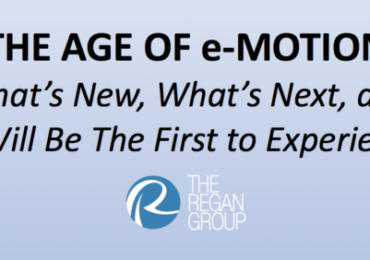Image Pexels
When you’re setting out on a new marketing campaign, it’s tempting to put all your eggs in one basket. Buoyed by your team’s collective enthusiasm, you pour your heart into a single strategy, convinced that this will deliver a world of benefits in one hit.
But more often than not, that’s not the case. Committing to one specific strategy is rarely a good idea. Instead, you should embrace a multi-strategy approach to hit different business goals and drive business success. Here’s why it matters (and how you can get it right).
Different strategies for different goals
A single marketing strategy rarely has multiple goals. They often have one specific target in mind — perhaps you want higher engagement, or more social followers, or increased product sales.
But there is no single holy grail marketing strategy that gets you all this. If there were, then 99% of marketers would be out of a job.
For example, an Instagram contest is an effective marketing strategy for ecommerce businesses. It’s a fun way to drive engagement and increase your follower count, and it’s a tactic employed by countless ecommerce brands.
And while they can boost sales, it’s not guaranteed. If it’s more conversions you’re after, you might be better off with a referral program or a content marketing strategy.
My point is, while reaching for the stars in a single strategy is admirable, it’s not an approach that has guaranteed results.
Takeaway tip: be realistic with the goals you want to achieve from your marketing strategy. Don’t overstretch yourself, as your strategy will just fall flat. Set one or two primary goals for each, and use them to guide your strategy throughout.
Choose the right channel for each strategy
What might work for one channel doesn’t necessarily work for another.
For example, let’s say you’re launching a UGC campaign with the aim of promoting a new product. Sourcing UGC from customers and cascading it through social media is a tried-and-tested method that is great for brands.
But an email-led UGC campaign? That’s a lot harder to orchestrate. The fact is, different channels lend themselves to different strategies.
Instead, you should tailor your strategy for different platforms. Social media, email, content, paid ads — each one has different pros and cons. For example, Facebook ads are great for new customer acquisition, while email lets you chase up on leads even after they’ve left the marketing funnel.
Use your knowledge of the various marketing channels to inform your strategies, and let your goal guide your choice of platform.
Takeaway tip: once you’ve identified the goals for your marketing strategy, choose the channel that will best help you achieve them. Consequently, you will create time- and cost-effective marketing strategies that deliver results.
Reach more people with multiple strategies
Your customers are a diverse bunch. Where one customer might discover your brand through social media, yet another would likely connect with you through a referral program.
The fact is, your customer journeys differ from person to person. They interact with your brand in different ways, often traversing multiple channels before making a purchase.
Embracing multiple marketing strategies lets you reach more people by catering to their personal preferences.
For example, 37% of Twitter users are aged between 18-29, so a strategy aimed at a younger demographic would flourish on the platform. But if you’re hoping to reach older customers, you might find greater success with PPC or email marketing.
Takeaway tip: while adopting multiple strategies will help you reach a wider audience, you shouldn’t strive for all and sundry. Identify the channels that are most popular with your customers.
Create a safety net that supports business growth
When you have multiple marketing strategies, you give yourself multiple safety nets to fall back on should one (or more) fall through.
Committing to multiple strategies diversifies your marketing streams. It creates a solid grounding that pushes your business further. As your various strategies flourish or slow down, you can allocate your resources more effectively to continue driving business success.
Consequently, your marketing will be more cost-effective as you are able to deploy staff and finances more effectively. This will also give your marketing longevity. If one strategy fails, you will have other strategies to support you during the subsequent downturn.
Take ecommerce for example. It’s a highly competitive industry, with countless DIY stores all vying for a piece of the pie. It requires a careful, considered approach to gain secure ground against competitors.
Consequently, true growth is achieved through a multi-tiered marketing strategy. Consider any business online and you’ll see growing domains that embrace paid ads, a presence across multiple social platforms, an online community, regular email newsletters, and so on.
This doesn’t just provide multiple marketing streams. It also creates a network that mutually supports each channel, a deck of cards that relies on each card supporting the other to keep it upright.
Takeaway tip: coordinating multiple marketing strategies can be time-consuming and complex, but it’s a worthwhile undertaking. Spending time and effort getting one thing right doesn’t guarantee success, especially in its early stages. Instead, spread your resources across multiple strategies to gain more ground.
The strongest bow is the one with many strings. Rather than pinning all your hopes on a single strategy, embrace multiple strategies to reach a wider audience, hit several goals, and create a solid foundation for sustained business growth.





